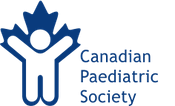With cannabis legalization imminent, surveillance program launches study on serious and life-threatening events in paediatric patients due to non-medical cannabis use
As legalized cannabis becomes available in Canada for adults, a Canadian Paediatric Surveillance Program study is watching for Canadian children and youth seeking medical attention for serious and life-threatening events due to recreational cannabis use.
The two-year study will run until October 2020 and will accept cases from the month preceding legalization (as of September 1, 2018).
Principal investigators of the study, Dr. Richard Bélanger of Université Laval, and Dr. Christina Grant of McMaster University, are closely following how cannabis legalization will roll out across the country as provinces and territories implement their respective legislation. They are also concerned about its impact on Canadian children and youth.
“The final version of Bill C-45 is 152 pages, and there’s no mention of children at all,” said Dr. Bélanger. “The only mention of youth is regarding criminal acts: what to do when kids are caught with cannabis in their possession.”
Dr. Bélanger and Dr. Grant, adolescent health specialists, note that while Canada’s cannabis legalization is directed at adults, youth are currently the largest users of cannabis.
Acknowledging current use patterns, adolescents will likely be affected, they say, at least through new routes of availability, marketing of cannabis-related products, and the false perception that cannabis is now safe.
“There’s a clear relationship [in the literature] between the prevalence of adolescent cannabis use and perception of risk,” said Dr. Grant. “Among teenagers, the lower the perceived risk of cannabis, the higher the prevalence of use, and vice versa.”
The investigators say this is why this CPSP study is so important. Children and youth are among those most at risk of harm from non-medical (recreational) cannabis use, but there is little scientific evidence on health outcomes related to cannabis use in this age group.
“To my knowledge, there’s no other in-depth national surveillance study that’s been done…in other jurisdictions that have legalized cannabis,” said Dr. Grant. “This is a unique opportunity to document serious and life threatening events associated with recreational cannabis, not just at the time of legalization, but up to two years after.”
Another concern is accidental ingestion, which has been recorded in other jurisdictions where cannabis has been legalized.
“In Washington and Colorado, where cannabis was legalized four years ago, there’s been a significant increase in non-intentional ingestion of certain cannabis products like edibles, and so there’s been an increase in the number of toddlers who are visiting paediatric emergency rooms with overdose symptoms secondary to edible cannabis, requiring significant medical treatment and assistance,” said Dr. Grant. “So, what’s going to happen in Canada?”
What can CPS members do to best serve their patients as cannabis legislation takes hold? “Participate!” says Dr. Bélanger.
“Paediatricians are quite concerned about the impact of cannabis legalization on children and adolescents in Canada,” he said. “A program such as the CPSP is able to uncover and follow what the impact will be, but to gather sufficient evidence, paediatricians need to take part in this interesting and quite important study,” said Dr. Bélanger.
Dr. Bélanger and Dr. Grant are also authors of the CPS positon statement on cannabis and youth, and have advocated for laws that protect children and youth from the potential harms associated with legalization.
Ethics approval for this study was granted by Health Canada and Public Health Agency of Canada’s Research Ethics Board.
For more information, or to participate, visit www.cpsp.cps.ca/surveillance/current-studies
Copyright
The Canadian Paediatric Society holds copyright on all information we publish on this blog. For complete details, read our Copyright Policy.
Disclaimer
The information on this blog should not be used as a substitute for medical care and advice. The views of blog writers do not necessarily represent the views of the Canadian Paediatric Society.
Last updated: Oct 15, 2018
